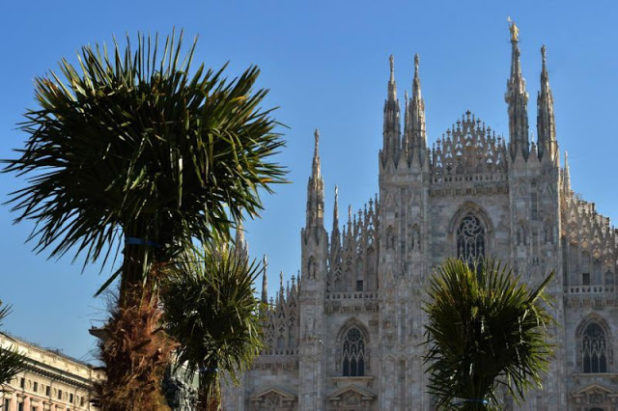Diversity Macht Frei
February 18, 2017
It was clear from the first that the fake news meme surfacing after Trump’s victory heralded renewed attempts at dissent suppression. Here we have some of the first concrete signs of that. Notice how “content that incites hatred” is just tacked on to the “fake news” construct. Will people who write “fake news” about colonies of purple elves living on Mars be subject to these sanctions? Somehow I doubt it. Somehow I sense that the “fake news” targeted for prosecution will always be curiously consonant with the political agenda of the government doing the prosecuting.
Can we counter the online circulation of false news and content that incites hatred? The response, practically unanimous in all the world is: we must. The big unknown remains how, while moving on the subtle and delicate line between protecting users and safeguarding freedom of expression on the internet. Italy now has a draft law to (try and) sanction with fines of up to 10 thousand euros and imprisonment of up to two years those who publish or disseminate on the internet (but not in newspapers) “fake, exaggerated or tendentious news” or those who are responsible for “campaigns of hatred”. The text, with its first signatory Adele Gambaro of the group Ala-Scelta Civica, ex of the 5-stars movement, was presented in the senate yesterday with bipartisan support.
Ironically, this woman proclaimed the importance of respecting the right to freedom of expression when she was expelled from the (lefty populist) 5-star movement a few years ago after criticising its leader’s tone.
Sitting in her office in the historic centre of Rome, Adele Gambaro showed no outward sign of being a traitorous dissident or “toxic element”. On her desk was a flipped-up iPad and a copy of the Italian constitution open at article no 21, which enshrines a citizen’s right to free expression. “I became a candidate because I was convinced the Five Star Movement (M5S) was a movement that respected Italian constitutional law,” she said. “This is fundamental. I respected my rights to express my opinions.”
While Italians can’t be allowed to have fake accurate news, they can now enjoy fake palm trees, planted alongside an iconic Christian cathedral. Banana trees are to follow soon.
The sudden appearance of a cluster of palm trees next to Milan’s famous cathedral has sparked a row over the use of non-native plants beside an iconic Italian landmark. Adding insult to injury for some botano-nationalists is the fact that the planting project has been sponsored by Starbucks, the US coffee giant preparing for an assault on an Italian market based on the nation’s cherished network of mostly independent bars.
The 42 palm trees, some of them five metres (17 feet) tall, are the first plants to be installed under a plan that also involves placing banana trees in the shadow of the 14th-century Gothic cathedral, known as the Duomo.
…”Palms and bananas in Piazza Duomo! All we need now are camels and monkeys and we will really have Africa in Italy,” said Matteo Salvini, leader of the Northern League.
The far-right politician had already had his hackles raised by Starbucks’ reported suggestion it could employ thousands of African refugees in its future Italian outlets.
“As far as their coffee is concerned, I’ll be having mine somewhere else,” Salvini said.
In the video below they ask various people in Milan what they think about the palm trees. At one point an African is asked if the trees make him feel “at home” and he replies “Yes, it’s a good atmosphere”.

